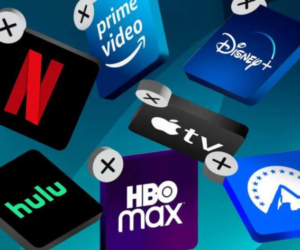As elitist and entitled as it is to claim movies aren’t as great as they once were, there is some truth in a sense with the mainstream. Though plenty of excellent films are still being made, the risk and innovative factors for big-budget mainstream audiences have greatly changed over the years.
Practically every person, including studios, know movie attendances have been down. The COVID-19 pandemic, streaming, and overall disinterest in cinema has made it quite the challenge to get people out to see a film. Unless it’s the next Marvel or Star Wars flick, why do so many great films bomb the box office? More importantly, why is this trend worrisome for the future of film?
Fewer Risks from Studios
Less attendance in theatre promotes a more significant challenge for filmmakers to sell their films. Unless a clear dollar sign is attached to the idea, most studios aren’t willing to give big budgets away to abstract, art-house, or non-mainstream films. Though it’s easy to blame the studios, why would they invest a lot of money in something if it doesn’t grant them a significant return?
Don’t get me wrong; countless immaculate films are being made that are pushing the boundaries on cinema as a whole. Unfortunately, these films tend to get smaller budgets and a smaller marketing plan, simply because the audience isn’t there to support the films. There is a niche for everything, but an Eraserhead-like film isn’t going to pack theatres nowadays.
The Pros and Cons of Streaming
The primary reason why so many great films bomb at the box office is due to streaming. Streaming makes it easy for people to view films in the comfort of their homes without worrying about any external factors of going to the movies. People aren’t talking over the film, you don’t have to drive, and it’s easy, most importantly.
However, this isn’t to say streaming is all that bad. Streaming makes it possible for more films to be made since there is such a massive production swing behind streaming services such as Netflix, Hulu, Amazon, etc. More possibilities are always a good thing; it just means fewer non-mainstream films will get an authentic theatre experience as they deserve.
A Film Bombing Doesn’t Mean It’s Bad
As obvious as it sounds, a film bombing at the box office doesn’t mean it’s bad. There have been plenty of incredible films that didn’t make a fraction of its budget. For example, Annihilation (2018), highly regarded as a fantastic Sci-Fi horror with an A-list cast, only made $43.1 million against a $40–55 million budget.
Even though Annihilation is an excellent film from a fantastic director and cast, it didn’t do well at the box office. It wasn’t Star Wars, a Marvel film, or the next Pixar movie, so general audiences didn’t care about wasting their time on it. If it’ll eventually come to streaming, why waste your time? It and many other great films bombing can make studios more hesitant to give large budgets to films that aren’t guaranteed to make a fortune. It’s a shame but the unfortunate reality of this era of filmmaking.
How Will the Future Hold For Cinema?
The modern epic of Dune (2021) garnished a lot of headlines regarding its potential sequel—the possibility of a sequel predicated on how it did at the box office. If the film did poorly, we would only get the first half of Frank Herbert’s Sci-Fi classic. If it did well, we’d get the second half.
Thankfully, Dune did well at the box office, showcasing that out-of-the-ordinary mainstream films can still do okay. It’s a reminder that even a film based on one of the best-selling sci-fi books, from one of the greatest working directors, with an ensemble cast might not be a guarantee to make money. Hopefully, studios will look at a film like Dune and realize greater returns aren’t everything as it pertains to art.

















